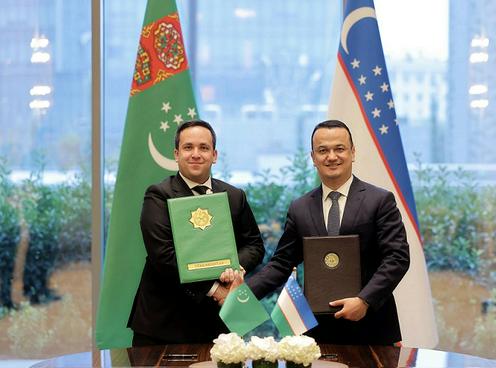Citizens of Uzbekistan and Turkmenistan will be able to enter the Shavat–Dashoguz border trade zone without obtaining visas. The agreement was reached during talks between government delegations of the two neighboring states, according to Uzbekistan’s Ministry of Investments, Industry and Trade (MIIT).
The legal framework for the operation of the border trade zone was discussed in Tashkent at a meeting between MIIT head Laziz Kudratov and Turkmenistan’s Minister of Trade and Foreign Economic Relations Nazardurdy Agahanov.
The two sides agreed on the operating procedures of the joint trade center, which is intended as a platform for expanding bilateral trade, promoting national products, and supporting entrepreneurship. The zone is designed to offer the most favorable conditions for business, including new infrastructure, streamlined logistics, and simplified customs procedures.
The total area of the zone is six hectares — three on the Uzbek side and three on the Turkmen side — with the possibility of expansion through a separate international agreement.
The joint site currently includes 112 rows, 28 shops, and 16 additional facilities organized into two blocks. The project is described as a pilot initiative. If successful, similar hubs will be opened at other border crossings.
The cooperation reflects the commitment of Tashkent and Ashgabat to building a fully developed and scalable cross-border trade network.
The Shavat–Dashoguz trade zone was officially launched on 17 November by Uzbekistan’s President Shavkat Mirziyoyev and Turkmen President Serdar Berdymukhamedov during Mirziyoyev’s visit to Turkmenistan.
According to both sides, the new platform will help strengthen economic ties between Uzbekistan’s Khorezm region and Turkmenistan’s Dashoguz velayat, home to more than 3.5 million people combined.
The two leaders also discussed plans to expand the initiative. Another joint border trade zone is planned for the Alat–Farap crossing. Officials noted that such projects could help bring bilateral trade to $2 billion.










